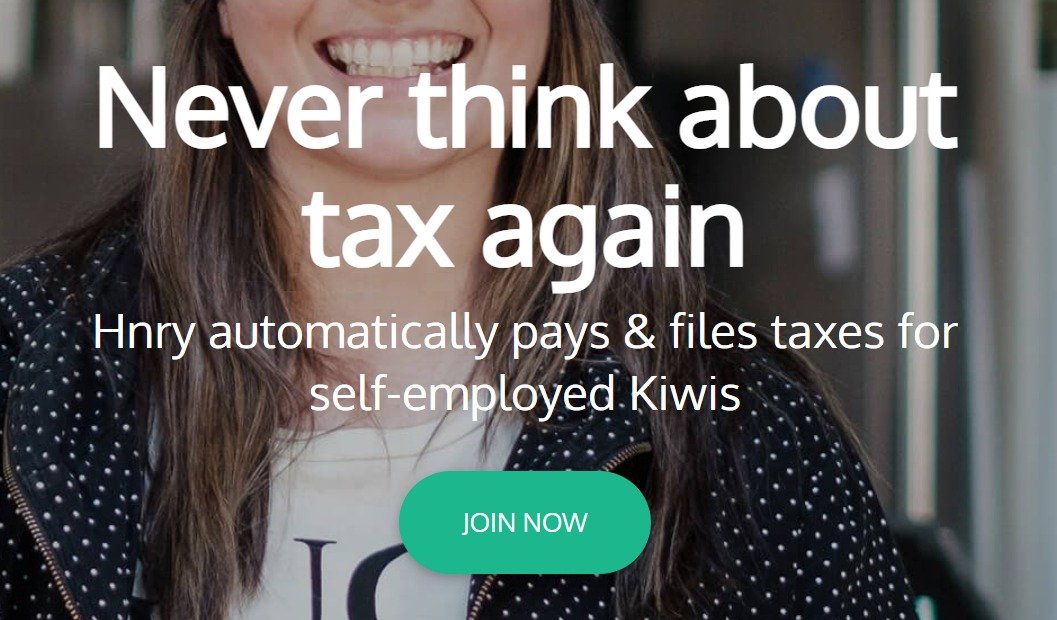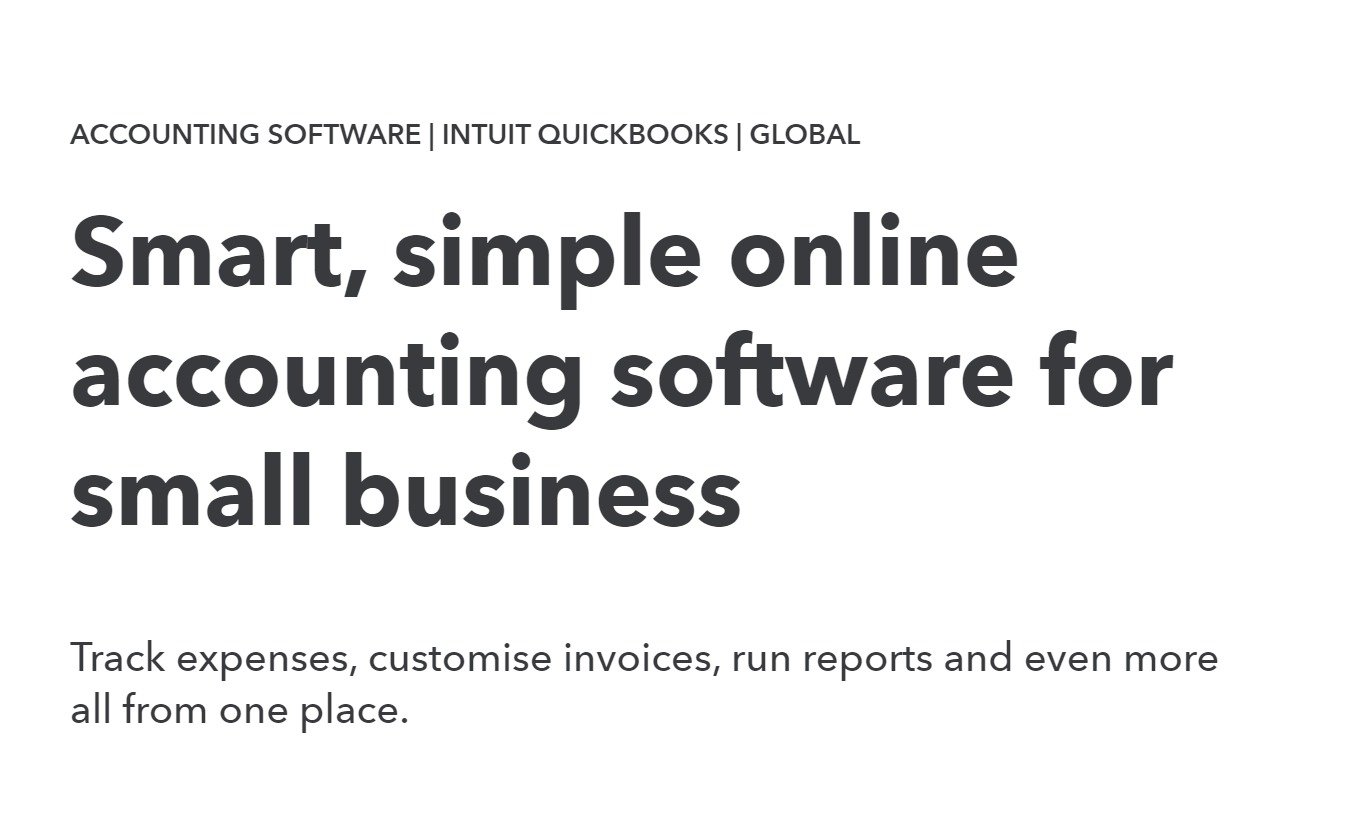Let your business model write your home page
(This originally appeared in my newsletter. Sign up now to get content like this, for free, every Monday.)
Here’s my favourite home page headline of all time:
This is for a company called Hnry that provides accounting software and tax handling for freelancers. I’m a customer.
When I send a client an invoice, they pay it into a Hnry bank account. Hnry then takes my tax out, and gives me the leftover. They then pay my taxes at the end of the year.
Great product. And the headline is great too.
It's great because it hits the three key things any home page headline needs to hit:
Why you should work with Hnry ("never think about tax again")
What Hnry does ("automatically pays and files taxes"
Who Hnry is for ("self employed kiwis")
Perfect!
But here's a painful reality for people like me: this is only partly a result of great copywriting. This headline also has a lot to do with the company's business model.
You can see me talk through this in a just-short-of-three minute video. Or keep scrolling to read the more in-depth written version.
A big problem for a small group
Hnry is very niched software - accounting software and tax handling bundled together, specifically for self-employed sole traders.
It's a hugely valuable service, for a pretty small group of people - self employed sole traders.
This means that they have the ability to really hammer that big problem they solve in their headline. That's exactly what they've done.
A company with a more broad audience does not have this ability. No matter how good you are at copywriting, you could not do this for, say, General Electric.
This is not to discount the copywriting. Hnry has done a great job of zeroing in on a really strong pain point, and articulating the solution in a really powerful, future-state driven way.
They don't just say "we handle your taxes" or something - they draw a vivid picture by writing "never think about tax again." These differences are important!
My point, though, is that if their business was more broad, and didn't zero in on such a big problem for a small group of people, it would be basically impossible to write such a specific headline. The broader your target market, the harder it is to be specific in your copywriting, and vice versa.
A couple of counter-examples
You can see this if you look at a couple of other players in the same space - Quickbooks and Xero. Both of these accounting software providers sell software to small businesses in general.
That's a much bigger target market! That's one person operations like mine (I used to be a Xero customer), hospitality businesses, eCommerce businesses, construction, medical practices, . . . the list goes on, and on and on.
This has implications for your home page headline. Here's Quickbooks:
And here’s Xero:
Couple of different approaches here, but the same general theme: very broad positioning. They don't narrow down on how they solve a specific problem the way Hnry does.
This isn't because they're bad copywriters. They're just working under a different set of constraints. When your audience is broad, your home page messaging has to be broad too.
How do you market a broad-based product?
All this does not mean that products with broad audiences can't be just as effective as Hnry. It just means they probably can't be as pointed in their messaging on their home page.
But home pages are just one part of your marketing toolkit. For a product with a broad market, you can achieve roughly the same thing as Hnry by creating landing pages that focus on a specific segment.
If your overall audience is small businesses, you could create a landing page for medium-sized professional services agencies. Or gardeners. Or cafes. Whatever you want.
Then, you can find out the narrow problem you solve for that group. By narrowing your audience, you're effectively creating the same advantage that Hnry enjoys from focusing on a niche.
The key is to make sure you focus on a solution that really resonates with your specific segment. Too often, I see companies do a ham-fisted job of this by just rephrasing their broad benefits. You have to go a little deeper than that, and really spend some time researching your chosen segment, figuring out their big problems, and showing how you solve those problems.
I'll get into more detail about that next week.
Sam
PS: Little housekeeping note: if you are subscribed to this newsletter with your work email, please subscribe again with your personal email. Then unsubscribe your work one if you want. I lose too many people who were otherwise very engaged, just because they changed jobs. Just bang your email address in here.
PPS: Speaking of home pages - you can review your own home page today, for free. Just download this cool checklist I put together. Usually I'd demand an email address in exchange, but since you're already subscribed, you can go straight to the checklist.
PPPS: I can review your home page for $799. Clear feedback you can immediately use, 7-day turnaround, money back guarantee. Book your home page review here.
If you like what you just read, you can get content like this delivered straight to your inbox at 8am every Monday. Sign up now.



